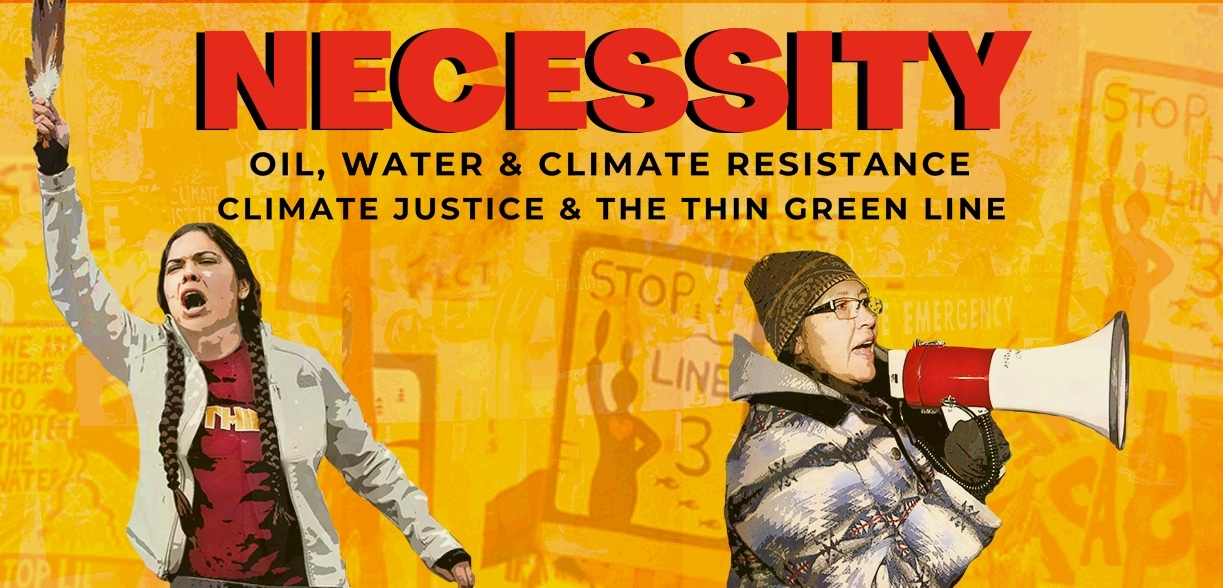
Grounded in people and places at the heart of the climate crisis, Oil, Water and Climate Resistance traces the fight in Minnesota against the expansion of pipelines carrying toxic tar sands oil through North America. The story unfolds in a setting where activists make a moral case for acts of civil disobedience using the necessity defense. Movement lawyers defending activists in court must prove that the threat of the climate emergency justified acts of civil disobedience and that there were no legal alternatives. Indigenous leaders and white allies carry into this site of struggle their knowledge of resistance strategies, as well as their experiences of loss and trauma, as they work to defend the sacred and demand justice. The film calls into question whether legal strategies are sufficient in responding to the scale of the global climate crisis.
In the course of screening Necessity at schools, activist events, and festivals, the team began production on a second part, titled Climate Justice & the Thin Green Line. Also feature-length, the film is set along the rivers of Oregon and follows activists as they enlist the necessity defense in a jury trial after being arrested for a direct action at Zenith Energy in Portland. This story of climate resistance in the Pacific Northwest brings into view a historical landscape of tribal leaders, Indigenous activists and white allies as they resist oil trains and trucks carrying these highly inflammable products through treaty lands. In following the path of oil-by-rail and oil resistance along the Columbia, we revisit lessons of the New Deal era of building massive dams and what climate activists take from that era in thinking about a Green New Deal.
You can stream the film online on most platforms.
We offer a free lesson, Teaching Climate Disobedience: Using the Film Necessity in the Classroom, for grades 7+ by Ursula Wolfe-Rocca. Students are introduced to the central figures profiled in Necessity: Oil, Water, and Climate Resistance through a mixer role play. The lesson includes multiple cohorts of climate activists: Indigenous leaders in the Climate Justice Movement, valve turners using civil disobedience to stop the flow of oil, and the legal team that uses the “necessity defense” in the courts.

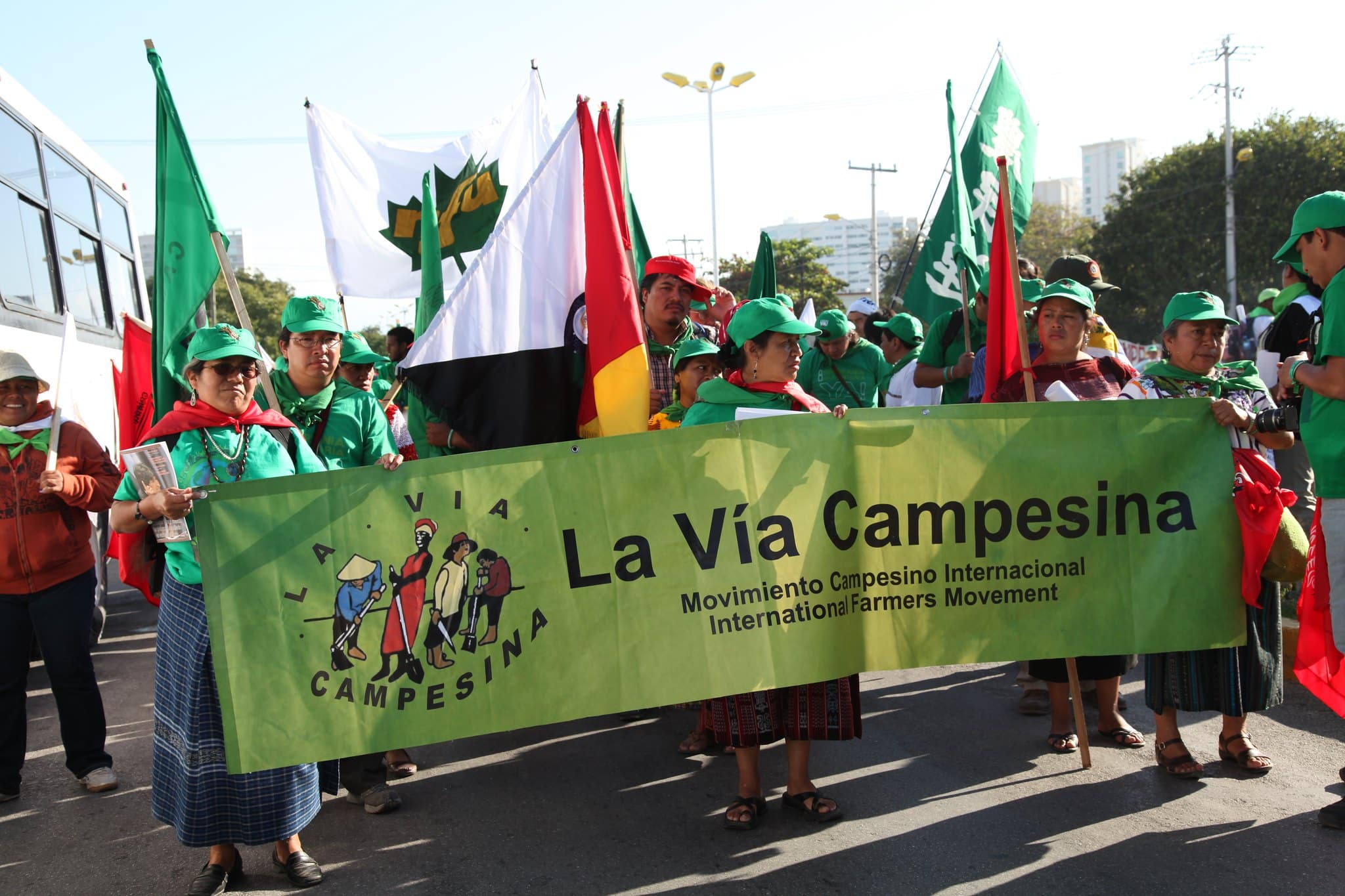

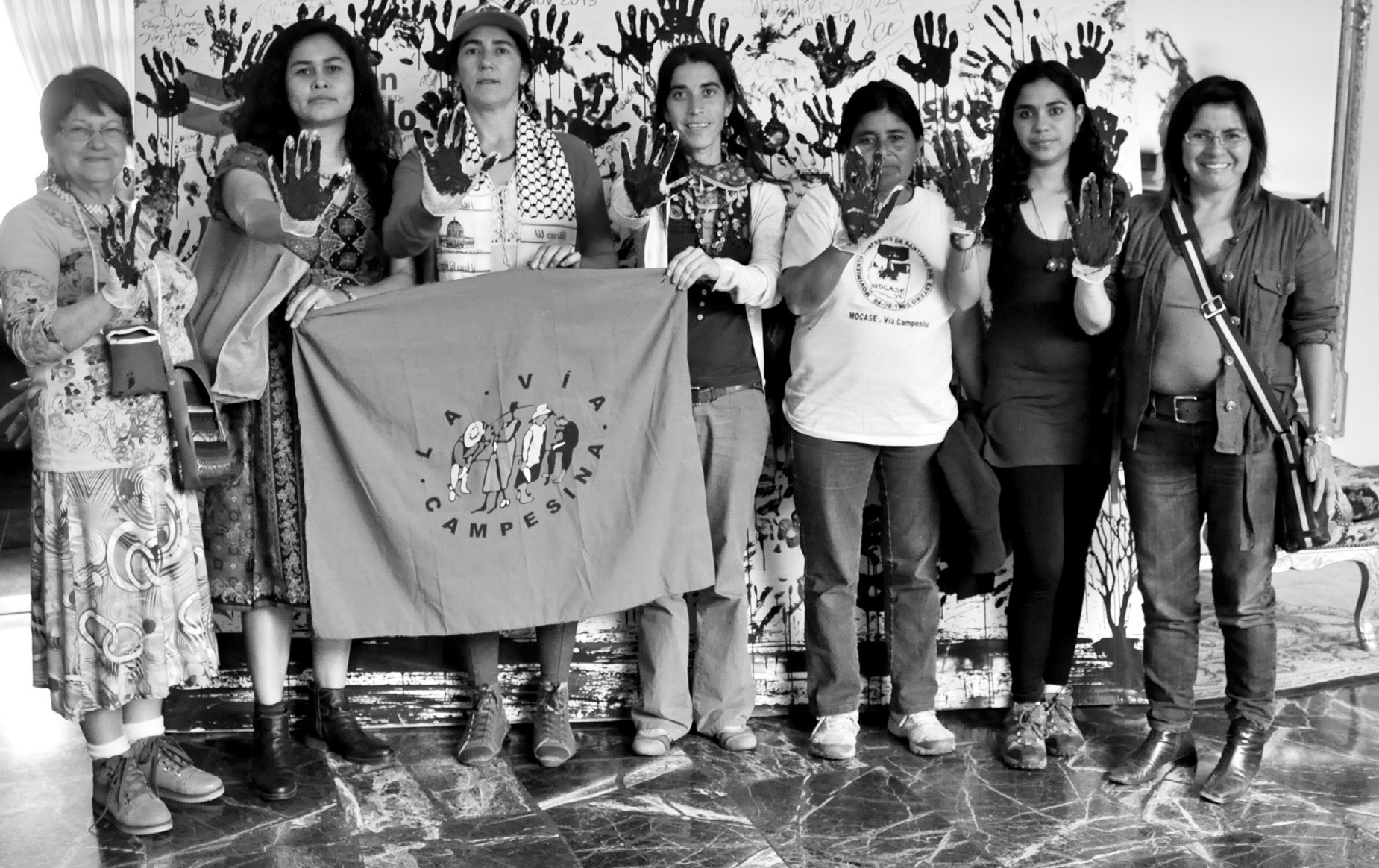
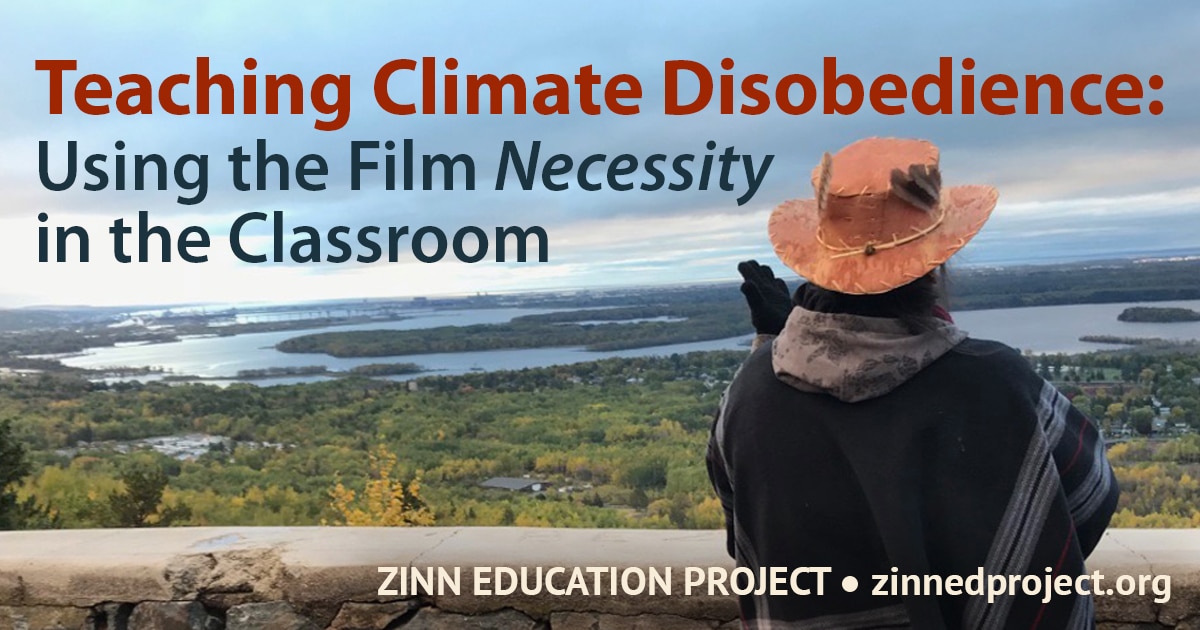

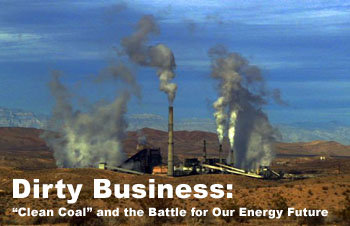



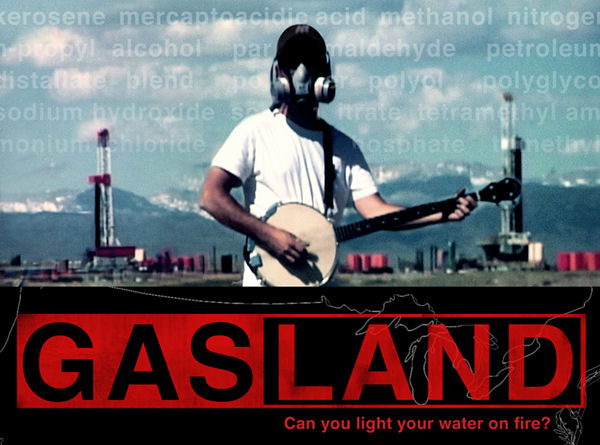






Twitter
Google plus
LinkedIn